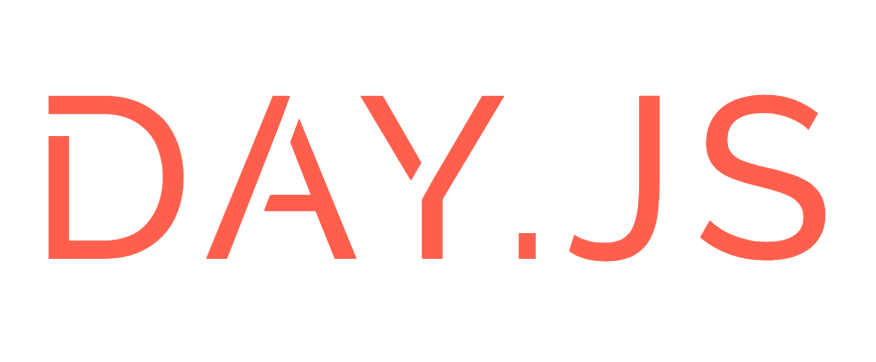English | 简体中文

Fast 2kB alternative to Moment.js with the same modern API





Day.js is a minimalist JavaScript library for modern browsers with a largely Moment.js-compatible API. If you use Moment.js, you already know how to use Day.js.
dayjs().startOf('month').add(1, 'day').set('year', 2018).format('YYYY-MM-DD HH:mm:ss');
- 🕒 Familiar Moment.js API & patterns
- 💪 Immutable
- 🔥 Chainable
- 📦 2kb mini library
- 👫 All browsers support
Installation
You have multiple ways of getting Day.js:
npm install dayjs --save
var dayjs = require('dayjs');
dayjs().format();
<script src="https://unpkg.com/dayjs"></script>
<script>
dayjs().format();
</script>
- Via download and self-hosting:
Just download the latest version of Day.js at https://unpkg.com/dayjs
Getting Started
Instead of modifying the native Date.prototype, Day.js creates a wrapper for the Date object, called Dayjs object.
Dayjs object is immutable, that is to say, all api operation will return a new Dayjs object.
API
Api will always return a new Dayjs object if not specified.
Parse
Simply call dayjs() with one of the supported input types.
Now
To get the current date and time, just call dayjs() with no parameters.
dayjs();
String
Creating from a string matches ISO 8601 format.
dayjs(String);
dayjs("1995-12-25");
Unix Timestamp (milliseconds)
Passing an integer value representing the number of milliseconds since the Unix Epoch (Jan 1 1970 12AM UTC).
dayjs(Number);
dayjs(1318781876406);
Date
Passing a pre-existing native Javascript Date object.
dayjs(Date);
dayjs(new Date(2018, 8, 18));
Clone
All Dayjs are immutable. If you want a copy of the object, just call .clone().
Calling dayjs() on a Dayjs object will also clone it.
dayjs(Dayjs);
dayjs().clone();
Validation
Check whether the Dayjs object considers the date invalid.
dayjs().isValid();
Get + Set
Get and set date.
Year
Get year.
dayjs().year();
Month
Get month.
dayjs().month();
Date of Month
Get day of the month.
dayjs().date();
Hour
Get hour.
dayjs().hour();
Minute
Get minute.
dayjs().minute();
Second
Get second.
dayjs().second();
Millisecond
Get millisecond.
dayjs().millisecond();
Set
Date setter.
Units are case insensitive
dayjs().set(unit : String, value : Int);
dayjs().set('month', 3);
dayjs().set('second', 30);
Manipulate
Once you have a Dayjs object, you may want to manipulate it in some way like this:
dayjs().startOf('month').add(1, 'day').subtract(1, 'year')
Add
Return a new Dayjs object by adding time.
dayjs().add(value : Number, unit : String);
dayjs().add(7, 'day');
Subtract
Return a new Dayjs object by subtracting time. exactly the same as dayjs#add.
dayjs().subtract(value : Number, unit : String);
dayjs().subtract(7, 'year');
Start of Time
Return a new Dayjs object by by setting it to the start of a unit of time.
dayjs().startOf(unit : String);
dayjs().startOf('year');
End of Time
Return a new Dayjs object by by setting it to the end of a unit of time.
dayjs().endOf(unit : String);
dayjs().endOf('month');
Display
Once parsing and manipulation are done, you need some way to display the Dayjs object.
Format
Takes a string of tokens and replaces them with their corresponding date values.
dayjs().format(String);
dayjs().format();
dayjs().format("[YYYY] MM-DDTHH:mm:ssZ");
Difference
Get the difference of two Dayjs object in milliseconds or other unit.
dayjs().diff(Dayjs, unit);
dayjs().diff(dayjs(), 'years');
Unix Timestamp (milliseconds)
Outputs the number of milliseconds since the Unix Epoch
dayjs().valueOf();
Unix Timestamp (seconds)
Outputs a Unix timestamp (the number of seconds since the Unix Epoch).
dayjs().unix();
Days in Month
Get the number of days in the current month.
dayjs().daysInMonth();
As Javascript Date
- return Javascript
Date object
Get copy of the native Date object from Dayjs object.
dayjs().toDate();
As Array
Return an array that mirrors the parameters from new Date().
dayjs().toArray();
As JSON
Serializing an Dayjs to JSON, will return an ISO8601 string.
dayjs().toJSON();
As ISO 8601 String
Formats a string to the ISO8601 standard.
dayjs().toISOString();
As Object
Return an object with year, month ... millisecond.
dayjs().toObject();
As String
dayjs().toString();
Query
Is Before
Check if a Dayjs object is before another Dayjs object.
dayjs().isBefore(Dayjs);
dayjs().isBefore(dayjs());
Is Same
Check if a Dayjs object is same as another Dayjs object.
dayjs().isSame(Dayjs);
dayjs().isSame(dayjs());
Is After
Check if a Dayjs object is after another Dayjs object.
dayjs().isAfter(Dayjs);
dayjs().isAfter(dayjs());
Is Leap Year
Check if a year is a leap year.
dayjs().isLeapYear();
dayjs('2000-01-01').isLeapYear();
License
MIT










